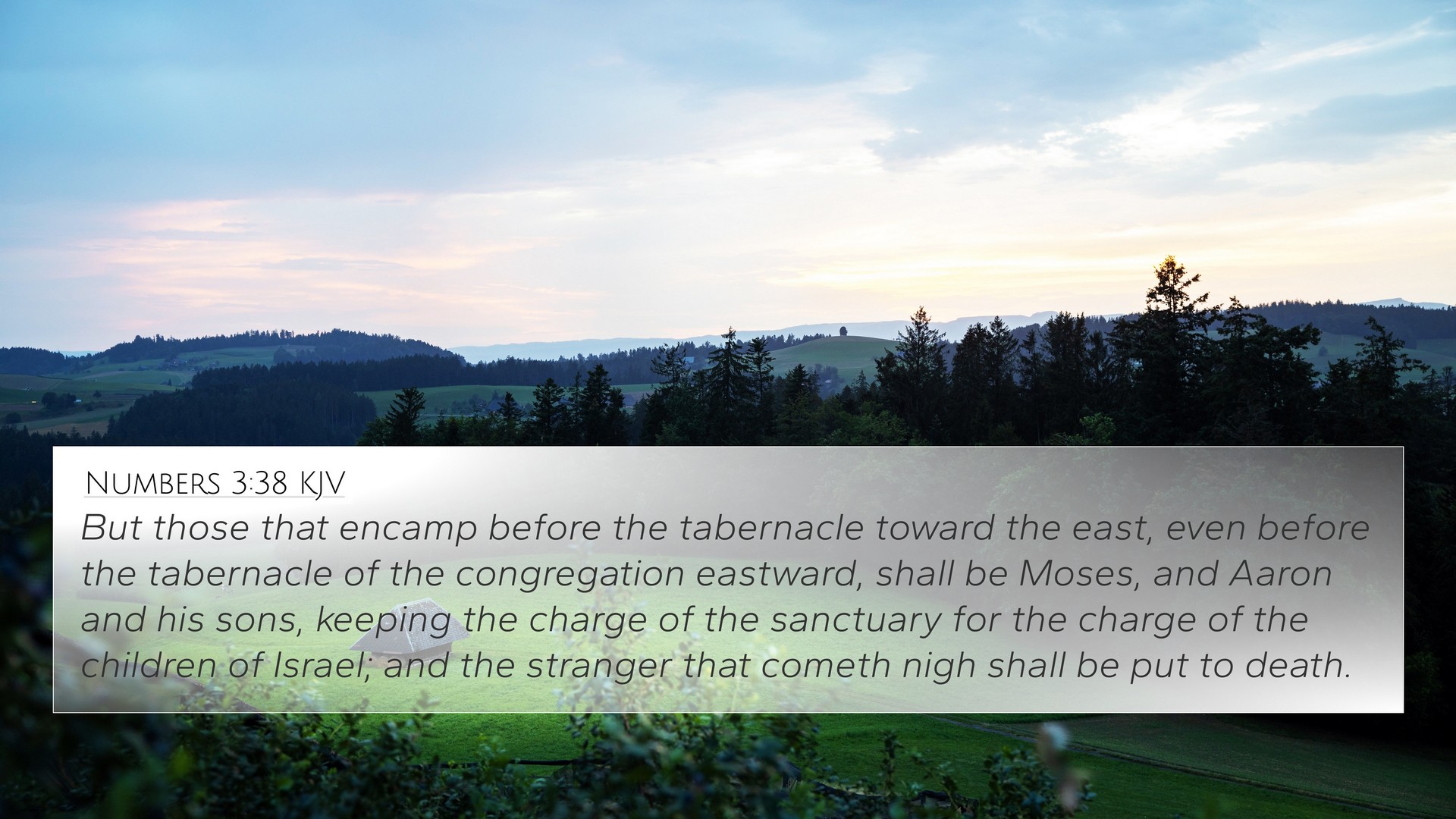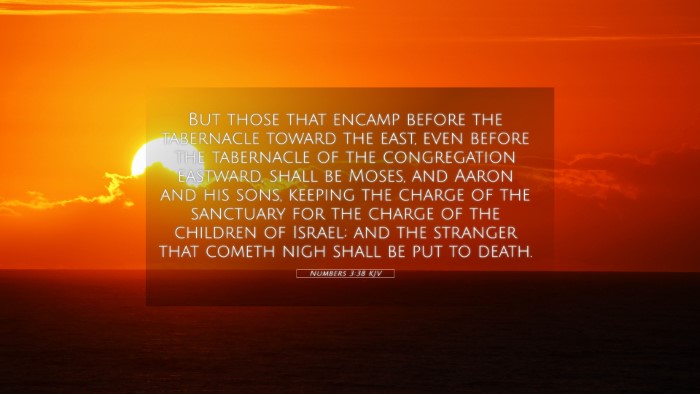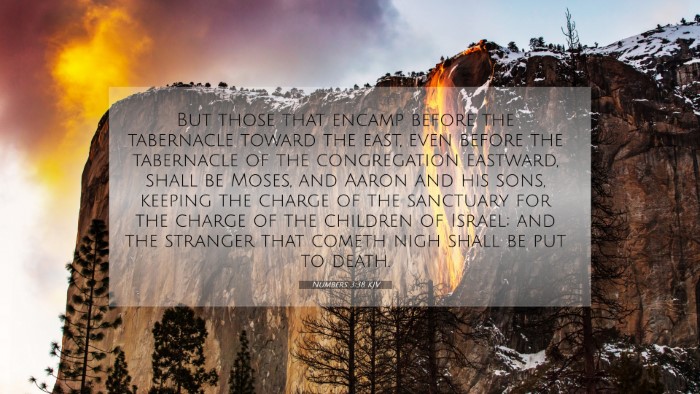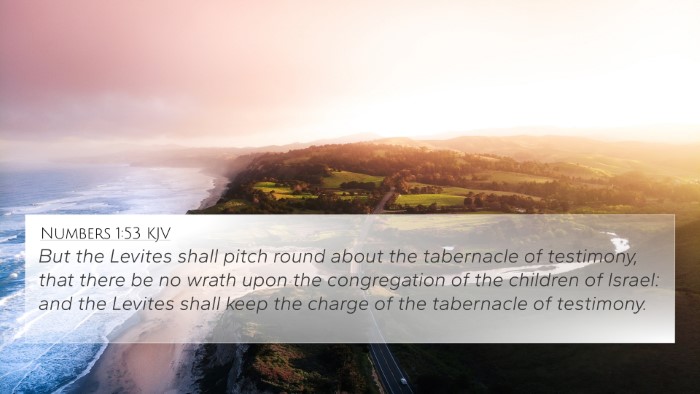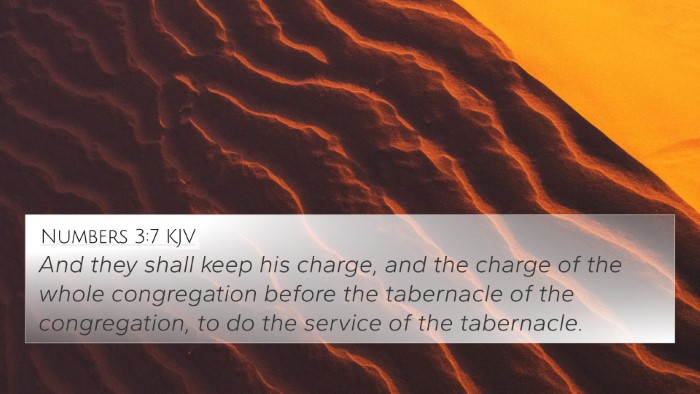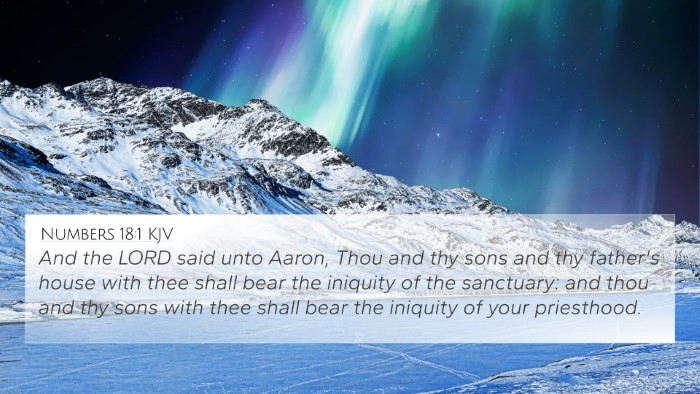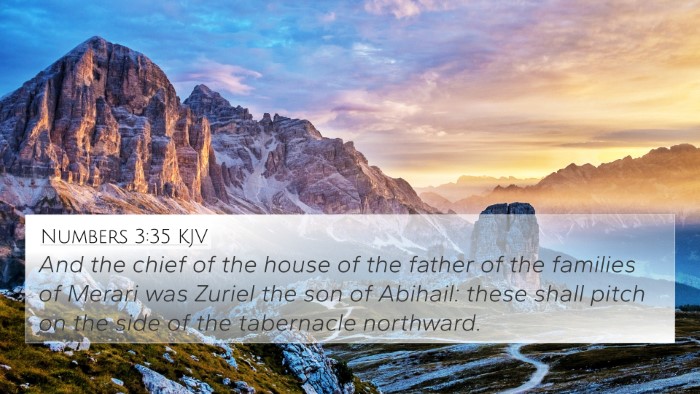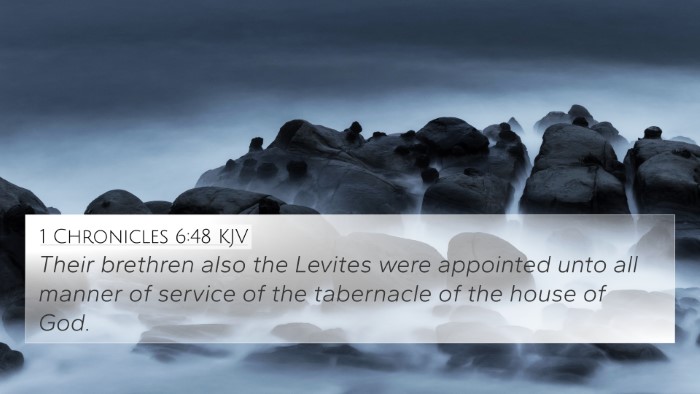Understanding Numbers 3:38
Numbers 3:38 serves as a critical verse in the context of the Levitical priesthood and the role of the tribe of Levi in the ancient Israelite community. In this verse, we find a specific mention of the responsibilities assigned to the Levites and the significance of their position. Below, we explore its meaning through various public domain commentaries, integrating insights from Matthew Henry, Albert Barnes, and Adam Clarke to provide a comprehensive understanding.
Verse Analysis
Verse (KJV): "But those that encamp before the tabernacle toward the east, even before the tabernacle of the congregation, Eastward, shall be Moses, and Aaron and his sons, keeping the charge of the sanctuary for the charge of the children of Israel; and the stranger that cometh nigh shall be put to death."
Meaning and Insights
- Moses and Aaron's Role: The verse highlights the appointed leaders of the Israelites, Moses and Aaron, who serve to guard the sanctity of the tabernacle. Matthew Henry emphasizes their unique position associated with direct responsibilities towards both God and the people.
- Importance of the Sanctuary: The sanctuary is a meeting place between God and Israel, symbolizing the divine presence among His people. Albert Barnes notes the sacredness attached to the charge of the sanctuary, which was crucial for maintaining holiness.
- Significance of Proximity: The eastward positioning underlines the symbolic representation of light and divine guidance, as Adam Clarke elaborates, indicating the place of honor and responsibility bestowed upon Aaron and his sons.
- Warning Against Strangers: The prohibition of strangers approaching the sanctuary underscores the serious nature of God's holiness. Matthew Henry notes that God's presence requires purity, reflecting an overarching theme of divine justice and order.
Cross-References
This verse connects to various others throughout the Scripture, reinforcing thematic links regarding priesthood, sanctity, and Israel's organization. Here are several Bible verses that relate to Numbers 3:38:
- Exodus 28:1: Discusses the anointing of Aaron and his sons to minister as priests, establishing their exclusive roles.
- Leviticus 16:1-2: Explains Aaron’s role in the Day of Atonement, highlighting the importance of priests in mediating between God and the people.
- Numbers 1:50-53: Details the responsibilities of the Levites in caring for the tabernacle, linking their duties with the sanctity of the divine space.
- Hebrews 5:1: Relates to the nature of the priesthood, affirming that priests must be appointed from among men and signifies the continuation of the priesthood from Aaron to Christ.
- 1 Peter 2:9: Describes believers as a royal priesthood, indicating that the priestly system finds its fulfillment in the New Testament community.
- Hebrews 10:19-22: Expounds on our access to the sanctuary through Christ, contrasting the old system with the new covenant.
- Numbers 3:10: Directly addresses the responsibilities of the Levites to ensure that they serve in their appointed tasks concerning the tabernacle.
Connecting Thematic Concepts
The role of God’s appointed leaders, the sanctity of His presence, and the responsibilities tied to worship and service are profound themes that run throughout the Scripture. Understanding Numbers 3:38 within the broader narrative allows for deeper insights into how God's order and holiness play vital roles in the relationship He has with His people.
Bible Verse Parallels
Linking Bible scriptures creates a rich tapestry of understanding. The inter-Biblical dialogue reflects the continuity of themes from the Old Testament through the New Testament, reinforcing God's plan for redemption and sanctification. For instance, comparing the roles of Levitical priests in the Old Testament with the priestly role of Christ elucidates both continuity and fulfillment in God's plan for humanity.
How to Use Cross-References
Tools for Bible cross-referencing, such as a Bible concordance or reference guides, enhance the study experience. By identifying connections between Old and New Testament passages, believers can better understand God's overarching narrative. Methods for cross-referencing include thematic studies that illuminate specific doctrines or principles that recurs throughout the Bible, such as the idea of sacrifice or mediation.
Conclusion
Numbers 3:38 serves as an essential verse for understanding the responsibilities of religious leadership within Israel, the sacredness of God's dwelling, and the importance of holiness in worship. By examining this verse alongside its cross-references, we uncover the rich layers of meaning that form the foundation of Biblical theology, highlighting the importance of proper conduct and reverence in the presence of the Almighty.
